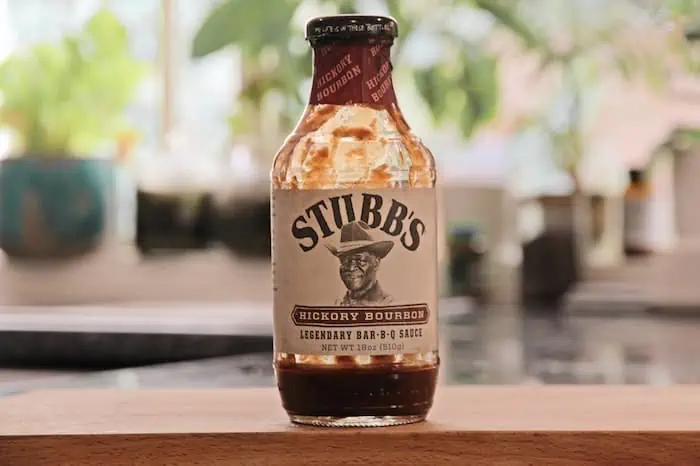What Sauces Can Dogs Eat? (4 Options)
Since many humans love spicing up their meals with spicy sauces and chilies, they may think that their dog would also enjoy a dash of spice or other flavors in his or her meal sometimes too.
When this thought crosses your mind, you might question what kinds of sauces your dog can eat. Here is the answer to your question:
Dogs can eat bone broth (if it doesn’t include additives like salt, onion, or garlic), unseasoned and puréed dog gravy, and homemade dog food sauce. All of these three options can be used as a sauce for your dog’s food. Some pet parents also use goat milk, kefir, or even eggs as a sauce-like addition to their dog’s diet.
It is not always easy to know which foods are safe for dogs to eat and what they should avoid. When adding in new and different foods and sauces, it’s always best to start slowly and see if they can digest it well. Many different breeds are sensitive to certain foods and ingredients, so what may work perfectly fine for one pup may not work so well for another.
Bone Broth for Dogs
Minerals such as magnesium, calcium, and phosphorus are found in bone broth, a delicious broth that is produced by cooking marrow-filled bones in a slow cooker.
Additionally, this type of broth is very beneficial for your dog’s digestive system as well as their joints. You can use bone broth as a homemade dog food topper to improve the flavor of dry food and make it more pleasant for fussy eaters.
Puréed Gravy
The most basic dog gravy is a puréed mixture of dog-safe ingredients. Various things may be used to produce puréed dog gravy, such as wet dog food, vegetables (such as carrots, green beans, or peas), carbohydrates like healthy brown rice, and even dog-friendly vegetables such as sweet potato. Combine all of the ingredients with some water in a food processor or blender and process them until smooth.
Homemade Dog Food Sauce
You can also make homemade dog food sauce by heating chicken stock or broth and thickening it. Select a broth or stock that is organic and low in salt with a minimal number of ingredients—and ideally, one that does not contain garlic or onion as these are both components that are harmful to dogs. The fewer the ingredients, the less you’ll have to worry if any of it is safe for dogs. Making homemade dog food sauce is very similar to making dog-friendly gravy, it will just be thinner and more sauce-like compared to its thicker counterpart.
Additional Sauce-Like Options
Homemade Dog Food Toppers
Toppings for dog food don’t always have to take the form of gravy or even a liquid. As a nice treat for your dog, scramble an egg in a pan without adding any oil, butter, or spices.
Occasionally feeding your dog a hard-cooked egg is also beneficial. Remove the peel and crumble it over the top of the dry dog food. Calcium can be extracted from an eggshell after being boiled and given to a dog, so this is a great way to ensure they get this essential mineral.
Dogs that are fussy eaters may also benefit from having fresh berries, apples, or bananas added to their meals.
Meat Gravy
Pet owners can prepare gravy for their dog using lean ground turkey, chicken, or beef. When using beef, crumble it into a pan and cook it over medium heat to create a ground beef gravy. After removing the fat, begin by adding a low-sodium broth along with a thickening such as cornstarch, and continue to cook the mixture until it reaches the appropriate thickness. Cool it at room temperature before adding it to your pet’s food. However, be cautious when using corn starch in your dog’s food as it is known to cause some digestive upset.
Unhealthy Sauces for Dogs
Soy Sauce

You must keep your dog away from soy sauce at all times. It is not safe for dogs to eat soy sauce under any circumstances. If a dog swallows any amount of soy sauce greater than a teaspoon and does not have immediate access to water, he will be at risk for renal injury or salt poisoning. This can result in neurological issues and even death in severe cases.
The high level of salt found in soy sauce is the primary reason why it should not be given to dogs. This sauce can easily be harmful and even fatal to dogs. Many types of soy sauce contain garlic or onion as well, both of which—when consumed in excessive quantities—are harmful to dogs. In dogs, the consumption of these ingredients may result in gastrointestinal distress, excessive panting, weakness, and diarrhea.
Pasta Sauce
Most of the time, pasta sauces include components that are particularly hazardous to the health of canines, among those being onions, garlic, and chives. Some of them even have preservatives or sweeteners that are harmful to dogs. One of these is xylitol, which is a sugar replacement that is particularly poisonous to canines.
Symptoms of onion toxicity include anemia and loss of red blood cells, bad breath, vomiting, drooling, nausea, diarrhea, and weakness.
If your dog exhibits any of these signs, you should make an appointment with your veterinarian as soon as possible so that they can treat the likely onion toxicity and help your pet recover quickly and safely.
Hot Sauce
Hot sauce cannot be given to dogs. If you feed your dog spicy food at all, you may be inviting more trouble than you realize. Spicy meals can be poisonous and induce gastrointestinal issues, such as abdominal discomfort, diarrhea, and gas. They can also cause your dog to vomit because of the increased thirst the spicy ingredients produce once consumed.
There are also ingredients included in most hot sauces that are harmful to dogs’ health. Chili peppers’ active ingredient, capsaicin, is responsible for its spiciness. The digestive tract of dogs can easily get irritated if they consume capsaicin. Several hot sauces include vinegar too, which can also cause gastrointestinal issues in dogs.
Barbecue Sauce

There is a high possibility that any given barbecue sauce contains onion and garlic, both known to be hazardous to dogs. Dogs are more sensitive to the sugar in barbecue sauce than people are, too, and it can make them sick very quickly.
Because barbecue sauces are acidic, they can upset your dog’s stomach, so keep that in mind if you give any to your pup for any reason. Some “sugar free” barbecue sauces also contain xylitol and other artificial sweeteners, and those can be dangerous if consumed by your canine. When a barbecue sauce is extra spicy, it is not completely digestible by dogs. It can upset their stomachs, leading to throwing up and diarrhea.
Why Aren’t Sauces Good for Your Dog?
Sauces are not suitable for dogs to eat because they can hurt their internal organs and digestive systems. There is an excessive amount of salt and other non-dog-friendly ingredients in most of them, and this can irritate the lining of a dog’s stomach, which in turn causes the dog to throw up and have diarrhea or have even more serious health issues arise due to consumption.
What Happens If My Dog Consumes Sauce?
If you think they accidentally ingested a tiny quantity of any type of sauce, offer them plenty of water and allow them to urinate any offending ingredients out. Keep an eye for symptoms of anything more serious if your pet consumed a sauce including excessive amounts of sodium or that had garlic, onion, or artificial sweetener in it.
However, the best thing to do when your dog has eaten something potentially problematic is to get in touch with your vet. They may either give you advice over the phone and tell you what to do and to look out for or they may recommend you come in for a check-up to make sure your dog stays safe.
Can I Give My Dog Food with Tomato Sauce?
The answer is no. Dogs should not eat tomato-based sauces or soups. Avoid giving your dog any tomato sauces or soups that come in jars or cans at all costs due to the added sodium that can be incredibly dangerous for them.
Non-ripe tomatoes can be poisonous to canines, although ripe ones may often be safe. However, to avoid placing your dog at risk of any significant digestive issues, it’s best to fully avoid this ingredient in general.
Can Dogs Have Paprika?
Even though paprika may not cause the same level of toxicity in dogs as other foods and ingredients, you should still avoid feeding it to your canine companion. This spice can easily make your dog’s stomach unhappy and give them diarrhea and other symptoms of digestive distress. If your canine companion is known to have gastrointestinal issues, you should completely avoid feeding him any dishes that contain paprika.
See Also:
Can Dog Eat Yellow Rice? Read This First!
Can Dogs Eat AirHeads? (Detailed Explanation)
Can Dogs Eat Fruit Roll-Ups?
Can Dogs Eat Nopales? Read This Frist!
Can Dogs Eat French Toast?

Family Dog Expert Author
Hi there! I’m Stuart, a devoted dog lover and family dog expert with over a decade of experience working with our furry companions. My passion for dogs drives me to share my knowledge and expertise, helping families build strong, loving bonds with their four-legged friends. When I’m not writing for SirDoggie, you’ll find me hiking, playing with my beautiful dog, or studying music.